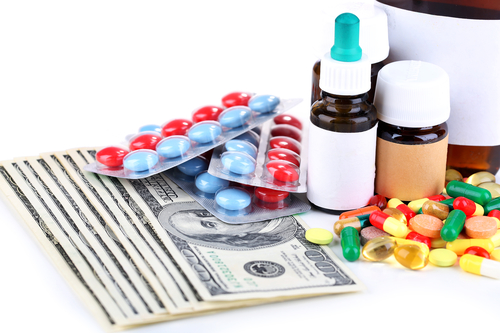The Rising Price of Medicine
Of all the developed nations in the world, the United States has by far the most expensive healthcare per capita. There are many factors that contribute to this, but the most influential seems to be the ever-growing price of medicine. The costs and subsequent accessibility of most brand name prescription drugs have been a major problem in our healthcare system that has steadily been growing worse over the years.
But Why is the Price of Medicine Always Increasing?
Generic Medications Take Longer to Approve
The average wait time for FDA approval of any drug is roughly 4 years. Still, unlike brand name prescription medications, generic drugs take a longer time for the FDA to approve. There are two primary reasons for this. The first is that the sheer number of generic medications far outweighs the number of brand name medications, and so they are harder to keep track of in the FDA approval process. The second is because most generic drug manufacturers tend to have a higher rejection rate than their brand name competitors. As a result, they have to resubmit or undergo multiple rounds of FDA review before their medications can be put on the market. The more immediate accessibility of expensive brand name medicines makes them more likely to be prescribed, and switching to a generic equivalent even after it’s been put on the market might be difficult for consumers for the reasons mentioned below.
The Government Does Not Set the Price of Medicine
Most countries that have national health programs tend to negotiate the prices of prescription medication through their governments. However, the United States does not do this. In fact, it is the drug companies in the United States that set their own prices, and most of the insurance companies go along with it. Studies have shown that insurance companies, especially private insurers, rarely if ever negotiate the prices of the prescription medications that their programs cover. Why? Because third party pharmacies— the ones that dispense the high-cost prescription drugs— receive payments from the drug companies. Thus, the market is influenced to benefit the drug manufacturers, the insurance companies, and the pharmacies all at once.
The Patent System Limits the Accessibility of Generic Medications
For the purposes of healthcare protection and innovation, the United States has implemented a patent system that allows drug companies to remain the sole manufacturer of prescription medications that they have had patented for at least 20 years. This means that certain medications—as well as their set pricing— are exclusive to their drug manufacturers. This, however, can be very problematic for consumers since the patent system inadvertently limits the ability of generic brand drug manufacturers to keep the price of medicine down.
The patent system legally requires pharmacists in 26 states to get patient consent before switching patients to the generic equivalent of their brand name prescription medication. The cost of prescription drugs decreases to almost half of the original brand name price once there are two generics on the market and to a third of the original cost with five generics on the market. With this in mind, and in the interest of protecting the monopolies they’ve built with brand name drug companies and private insurers, pharmacists might not even present the cheaper option to patients. So, consumers often pay for the expensive brand name drug because they weren’t made aware that a cheaper equivalent was available.
A Brief Overview of the United States’ Rising Price of Medicine
Back in 2013, the reported average cost of prescription medication in the United States (per person) was around $858— 10-15% higher than in Canada, Germany and France, and more than twice the average cost in 19 other nations. Since then, between 2013 and 2015, the reported net spending on prescription medications in the United States has increased by roughly 20%. Today, the price of medicine makes up about 17% of all healthcare costs. This affects everyone, whether or not the take prescription medication, since the price of medicine heavily influences the United States government’s national budget.
Advocate My Meds Can Help Fight the Rising Price of Medicine
With these and other factors weighing on the national budget, millions of Americans can’t afford their medications and everyone is left to suffer. This is where we come in. Advocate My Meds is dedicated to finding the right assistance program for you so you can get the medications you need in spite of our nation’s rising healthcare costs. If you or someone you know is in need of prescription assistance in this trying time, please call us at 877-596-1604.







